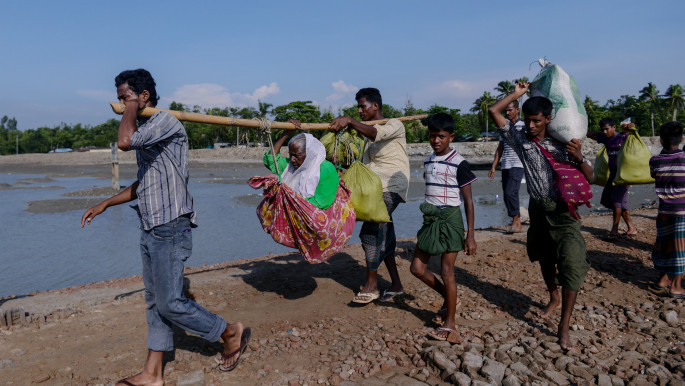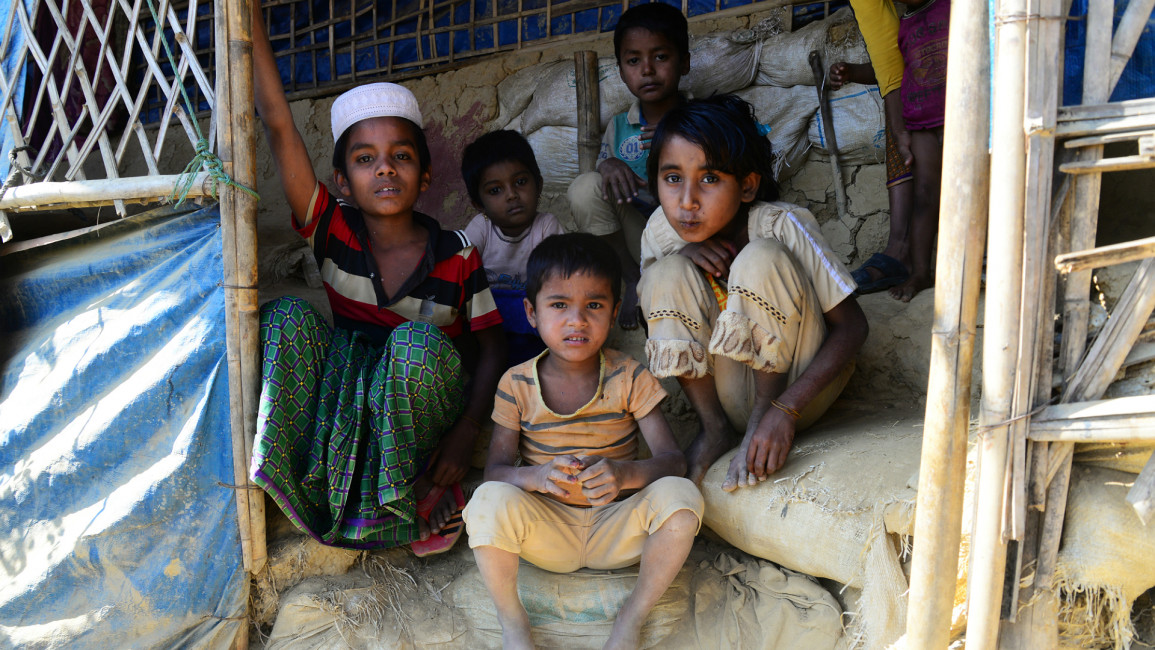UN seeks $920 million aid for Rohingya refugees in Bangladesh
The United Nations on Friday called for $920 million in aid for around a million Rohingya taking shelter in Bangladesh after bloodshed in Buddhist-majority Myanmar.
About 740,000 of the Muslim minority fled to Bangladesh as a result of a military crackdown in August 2017, condemned by the UN as ethnic cleansing.
They joined another 300,000 Rohingya who were already living in overcrowded camps in Cox's Bazar following previous bouts of violence.
In a joint statement the UN refugee agency and the International Organization of Migration said they were looking to raise $920 million (817 million euros) to meet "the massive needs of more than 900,000 refugees from Myanmar and over 330,000 vulnerable Bangladeshis in host communities".
"Critical aid and services such as food, water, sanitation and shelter represent more than half of the funding needs this year.
"Other key sectors of the appeal include health, site management, protection activities including child protection and addressing sexual and gender-based violence, immunisation education and nutrition," it added.
UN High Commissioner for Refugees Filippo Grandi called on Myanmar "to take urgent action to address the root causes of this crisis which have persisted for decades, so that people are no longer forced to flee and can eventually return home in safety and dignity."
 |
|
| Read also: Exodus of Rohingya from Myanmar to Bangladesh sparks ecological crisis |
In Myanmar, the Rohingya are widely seen as interlopers from Bangladesh and have been denied citizenship, rights and access to services for decades.
Aung San Suu Kyi's civilian government remains in a fragile power-sharing agreement with the military, which has denied abuses and said its operations were justified to root out Rohingya insurgents following a series of deadly attacks on police posts.
Suu Kyi's refusal to stand up for the Rohingya has left her international reputation in tatters.
This is the third appeal for aid issued jointly by UNHCR, IOM and Bangladesh.
They said the situation of the refugees had improved vastly with money raised earlier.
Acute malnutrition has falling from emergency levels in late 2017, immunisation coverage has grown to 89 percent, and women delivering their babies in health facilities has risen from 22 percent to 40 percent, the UN joint statement said.
But Bangladeshi State Minister of Foreign Affairs Shahriar Alam insisted the goal remains repatriation.
"We have signed (an) agreement with Myanmar but unfortunately the situation in Myanmar is still not conducive for voluntary safe and dignified return," he said.
"So we urge on the international community to put pressure on Myanmar and engage with them constructively, so as a responsible... member of the United Nations they take their citizens back without further delays."



